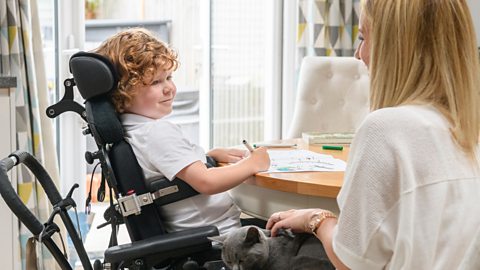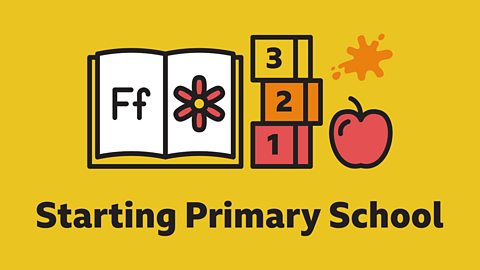This article was first published in October 2019
by Jill Hardman, Education Specialist
One of the big decisions youāll have to make as a parent is where your child will go to school. After all, theyāll be in formal education for a long time, so you want to get it right.
Some children need more support than others to gain as much as they can from their education. They might need extra help with reading, understanding or talking for example; or they might find it hard to manage their emotions or have problems developing physical skills.
Your child may have been diagnosed with a medical condition or disability that affects their learning, and it may be clear from professional assessments what kind of educational help they need.
They may have no diagnosis at all. Or, it could be that at this stage, you simply suspect that your son or daughter finds some things harder than other children of the same age.
Whatever your familyās situation, if your child is likely to need extra help when they get to school, you may have additional questions or worries about which school is best. And while finding a suitable school may seem like a daunting task, there is help available.

What to do if you need extra support for your child
For children who need more help than a mainstream school would normally be able to provide on their own, a legally binding plan will be issued by the local authority where a child lives. This will detail the childās educational needs and the support they will receive.
The plan is called an Education Health and Care (EHC) Plan in England. In Wales and Northern Ireland the equivalent plan is called a Statement, and in Scotland itās known as a Coordinated Support Plan (CSP). The plan is issued following a formal assessment coordinated by the local authority where the child lives.
Many children with one of these legal plans in place will go to mainstream school - and the law gives children a strong right to a mainstream education if parents want this. However, some children with more complex needs may be better supported in a specialist school.

The majority of children in England, Wales and Northern Ireland will need an EHC Plan/Statement of Special Educational Needs (SEN) in order to gain admission to a place in a specialist school.
If your child already has an EHC Plan (England), or its equivalent in Wales and Northern Ireland, you do not have to fill in a general admissions form, as there is a different process. Your local authority will discuss school options with you when your childās plan is drawn up, or reviewed, and they must consider your views. You will have the opportunity to state your preference for a particular mainstream or specialist school to be named on your childās EHCP or Statement. The final decision rests with the local authority, but you can appeal if you are not happy about the school named.
In Scotland, most children are expected to go to their designated local mainstream school. However if you want your child to go to a different mainstream school, or to a specialist school, you can make a placing request to your local authority, whether or not your child has a Coordinated Support Plan (CSP).

Types of School
State funded primary schools broadly fall into two types: mainstream schools and specialist schools.
Mainstream schools
Mainstream schools cater for children with and without additional needs.
Whilst schools must identify which children need extra help and put that in place, parents can also talk to the school staff about any concerns or extra needs they think their child has.
Extra help might include individual help from a teaching assistant or help in a group, and support from visiting specialists such as a speech and language therapist, all depending on the schoolās funding.
Mainstream schools should also support children with health conditions - for example with managing medication, personal care, or toileting. Some schools may even have specialist centres or units, where pupils with particular needs such as communication may spend some of their time.
All mainstream schools will have a staff member responsible for arranging support for pupils with special educational needs (SEN). In England and Northern Ireland they are called a Special Educational Needs Co-ordinator or SENCO for short. In Wales they may be called an Additional Learning Needs Co-ordinator (ANCO). In Scotland they are called an Additional Support or Learning Assistant (ASL). Try to meet this person to discuss any concerns you have and ask what support would be given to your child.
Specialist schools
Specialist schools are particularly designed to support pupils with additional needs. Some specialist schools may take pupils with a particular diagnosis such as autism, or may be adapted to support children with physical disabilities, whilst other schools will take pupils with a wide range of needs.
Each specialist school will have a curriculum tailored to the needs of the pupils it supports. They will usually have much smaller classes and specially trained teachers as well as a higher staff/pupil ratio. A specialist school may have speech therapists, occupational therapists or other professionals based within the school who work closely with teaching staff. There may also be specialist facilities such as play equipment or computer software, and the building itself may be designed with the needs of its pupils in mind - for example, a wheelchair accessible layout or quiet spaces.
Because there are fewer specialist schools than mainstream schools, for most families the nearest will be some distance from home. The local authority must provide help with transport between home and school, for those children who meet the criteria.


Mainstream or specialist school ā which one is right for my child?
As a parent, you may have a personal preference for a mainstream or specialist school setting for your child. The decision will depend on your childās individual needs and what the schools in your area can provide.
You may feel mainstream is best if you want your child to go to school in your area, along with their siblings or typically developing peers.
If itās apparent that your child will need a lot of adult help or specialist support to make the progress they are capable of, a dedicated specialist school might be a better option for your child.
In addition, there may be other options to explore such as a mainstream school with a specialist unit or a dual placement where your child spends time in both a mainstream and a specialist school.

Steps to take when making this decision
1. Do your research.
If you are looking at a particular school, their website is a good place to start. This may give you an idea of the schoolās character. Look also at school policies on special educational needs, disability, behaviour and supporting pupils with health conditions. This may tell you about the level of understanding and help your child would receive in that school.
2. Talk to other parents.
Get inside information from families with children at the school, especially if their child has similar needs to yours.
3. Visit the school.
Mainstream schools will usually have open days in the weeks before the applications open but they may be happy to show you round by arrangement. Specialist schools wonāt usually have open days. Visits are often arranged through the local authority but sometimes schools are happy to arrange informal visits. Check with the school you are interested in.
It may be a difficult decision, but you should not have to make it on your own. Professionals who have assessed or worked with your child may have views on what type of education setting would suit them best.

See our useful links page to find more information about educating your child with SEND.
Jill Hardman is an Education Specialist for Contact, the charity for families with disabled children.
Know someone who has recently started school or will be beginning next September? Check out the rest of which has lots of ways to help prepare children for different aspects of school life ā both practically and emotionally.

More from “óĻó“«Ć½ Bitesize Parents' Toolkitā¦
Parents' Toolkit
Fun activities, real-life stories, wellbeing support and loads of helpful advice - we're here for you and your child.

How do I know if my child has SEND?
Child psychologist Laverne Antrobus explains the best ways to spot SEND in children.

Choosing a mainstream school for our child with SEND
Madeline explains her decision to send her child with Down's Syndrome to a mainstream school.

Special Educational Needs and Disabilities collection
All of the Starting Primary School content featuring advice and stories for parents of children with SEND.

More Starting Primary School videos and articles
Head to our homepage to help you and your child prepare for starting primary school and thrive in school life.

